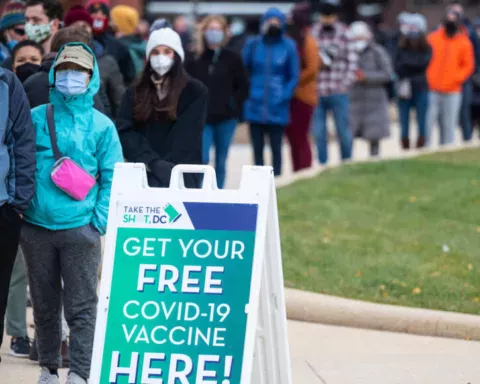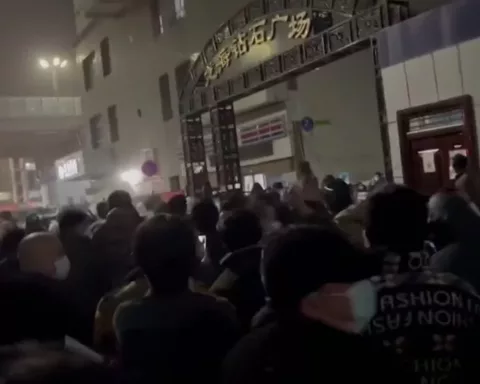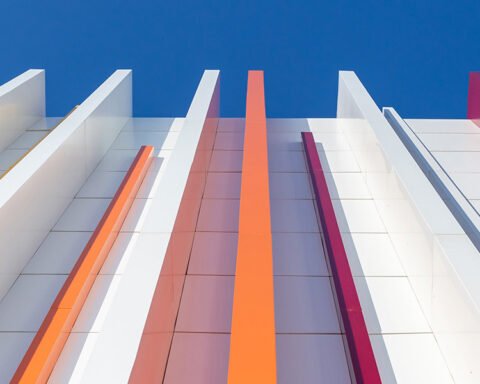“We need an affordable vaccine for everybody everywhere, because we will only be safe if everybody’s safe”, warned António Guterres. “To think that we can preserve the rich people, and let the poor people suffer, is a stupid mistake.”
In a wide ranging-interview, just ahead of the unprecedented and mostly virtual UNGA75, Mr. Guterres outlines his priorities for the year ahead, with the unpredictable threat of the coronavirus that is still spreading, together with the opportunities that he sees to radically change course for the long-term benefit of all.
The UN chief reiterates the imperative of silencing the guns through a global ceasefire so the world can truly unite against the virus; building true solidarity through the “global public good” of a vaccine for all, available to all; and making sure the world keeps global warming below 1.5 degrees and achieves carbon neutrality through climate action, by 2050.
He outlines the importance of women taking power for themselves, ending inequalities through a sea change in attitudes over discrimination, gender, disabilities and equal rights.
You can find a partially-edited transcript of the interview below, as well as our Lid is On podcast featuring the interview, and UN video capturing some of the highlights – all featured on this page.
COVID-19 has hit the world hard and changed many things. We’ve seen amazing acts of solidarity, but there are still some struggles ahead. How do you assess where we are now with this pandemic?
UN Secretary-General António Guterres: I’m very worried. The pandemic has shown us the enormous fragility of the world. Not only in relation to COVID-19, but also in relation to climate change, to the lawlessness in cyberspace, the risks of nuclear proliferation, to the impacts of inequality in the cohesion of societies.
A microscopic virus has put us on our knees. This should lead to a lot of humility in world leaders, and to unity and solidarity in the fight against COVID-19. But we know that there has been no unity. Each country has adopted its own strategy, and we see the results: the virus has progressed everywhere.
In developing countries, people are suffering so much from this lack of solidarity. This is negative for everybody, because if we are not able to properly address COVID-19 in these countries, the virus goes back and forth and we will all pay a heavy price, even in the richest countries in the world.
UN News: What would you hope governments and community do to overcome it and emerge stronger?
SG: We need everyone to work together in cooperation. It is absolutely essential that a vaccine be considered a global public good, a people’s vaccine. And that we won’t have a competition of countries trying to get as many vaccines as possible for themselves, and forgetting about those that have less resources.
We need an affordable vaccine for everybody, everywhere, because we will only be safe if everybody’s safe. To think that we can preserve the rich people and let the poor people suffer, is a stupid mistake.
UN News: COVID-19 may have diverted attention and resources away from the urgent need for climate action. What are three key things that must be done immediately for the world to shift gear on this issue?
SG: Our objective has been defined by the scientific community. We absolutely must limit the growth in temperature to 1.5 degrees, by the end of the century. For that, we need to have carbon neutrality by 2050. And for that, we need to have a reduction of about 45 per cent of emissions in the next decade.
So, the objectives are clear. How can we reach them? We need a total commitment, especially of the big emitters, to all the transformational actions in energy, in agriculture in industry, in transportation, in all areas of our life, we need transformation actions that make it possible to reach those objectives.
And it’s very simple. We should stop spending taxpayers’ money in subsidies to fossil fuels. We should massively invest in renewable energy because it’s cheaper, it’s most profitable. It’s not only the right thing to do, it is the best economic thing to do.
We need to stop the construction of coal power plants. We need to invest in new forms of mobility, namely through electric cars; we need to invest in hydrogen. That is the fuel of the future.
And at the same time, we need to conduct protection of biodiversity, protection of forests, transformation in our agriculture. In all these aspects, we need to work together with a common strategy and with a clear objective, we need to be carbon neutral in 2050.
The 2030 deadline set for the achievement of the 17 Sustainable Development Goals is really not too far away. How should world leaders re-focus efforts, to achieve the SDGs? After all they are our blueprint for a more sustainable and equitable planet.
SG: Well, because of COVID-19 and the need to recover our economies, we are spending trillions of dollars at the present moment. So, if you are spending thousands of dollars, let’s do it in line with the Sustainable Development Goals.
Let’s do it in line with the 2030 Agenda. Let’s rebuild our economies better with more equity fighting inequality, with more sustainability fighting climate change, and addressing all the other aspects that are relevant in the Sustainable Development Goals – be it the reduction of poverty, be it the protection of the oceans, be it things related to education, to health, to governance.
So, COVID-19 is a threat, is a problem, but it is also an opportunity, because as we are to change, we can change in the right direction. As we are mobilizing massive resources to rebuild, we can rebuild in the right direction and our blueprint must be Agenda 2030 and the Sustainable Development Goals.
The UN has been around for 75 years, and you’ve called on everyone to participate actively in the UN75 conversations, especially those not often heard, including youth. You have spoken to youth, but also you were often in listening mode. What encouraged you from those conversations with youth?
SG: A very strong commitment of youth to international corporation. The young generation is much more cosmopolitan than my generation. They feel a universalist approach to problems. They understand that we need to be together.
And so they understand that we need a stronger multilateralism, but a multilateralism that is also a people’s multilateralism, in which they can participate in decision making, and this very strong commitment of young people to ideas like Universal Health Coverage; to ideas like climate action; to ideas like more justice and equality in our societies; gender equality (the) fight against racism. All these aspects show very committed young people. That is the biggest hope I have in relation to our common future.
Some 25 years ago, the Beijing Declaration was a historic turning point for advancing the rights of women. But millennia of patriarchy have resulted in a male dominated world. What would you like to see men do, to ensure we have gender policy parity and equality?
SG: Men must understand that it is in the interest of everybody, not only of women, to have gender equality and gender parity, because the world will be better.
It is true we live in a male-dominated world with a male-dominated culture. That is why it is so important in the UN to reach parity. And we have done it at the top level, but we now need to do it everywhere.
There is essentially a question of power and we need to have – I don’t like to use, ‘empowering women’ – it looks like we are giving power to women. Power is not given, it’s taken, but we need to have women moving, in order to assert their role in society. And we need men understanding that that is a positive thing.






